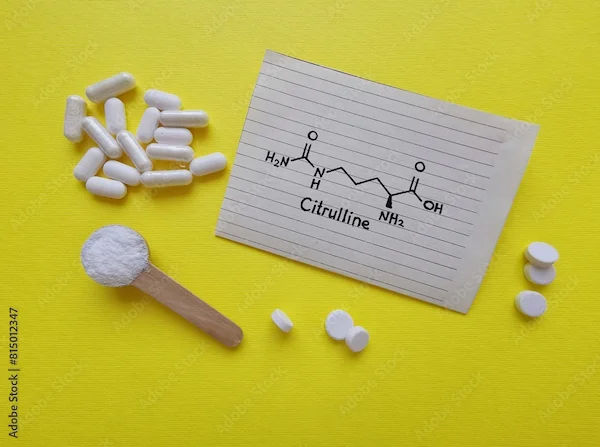How to Reduce Free Radicals in the Body?
Discover effective natural ways to reduce free radicals in the body through antioxidant-rich foods, lifestyle changes, and holistic practices. Boost your immunity and slow down ageing with simple, science-backed tips.

Written by
Last updated on 3rd Jul, 2025
Free radicals are unstable molecules that can damage cells and accelerate ageing and disease. They’re produced naturally during body functions like metabolism and immune responses but also due to external factors like pollution, smoking, and UV radiation. Occasional free radical formation is normal, but consistent exposure without proper balance can lead to oxidative stress, where the body’s antioxidant defence is overwhelmed. Managing free radicals through lifestyle and diet is key to overall wellness.
What are the Causes of Free Radicals?
Free radicals can result from both internal processes and external exposures. Understanding these sources helps in effectively countering their effects.
1. Internal Factors
These factors include natural bodily functions. Some of the internal factors include:
Metabolism: Food digestion generates energy and also free radicals.
Inflammation: Immune responses produce free radicals to fight infections.
Cellular Respiration: Even breathing results in free radical generation.
2. External Factors
These factors may increase free radical load. Some of the external factors include:
Pollution and Chemicals: Industrial fumes, pesticides, and cleaning products contribute to oxidative damage.
Tobacco and Alcohol: Increase toxin levels and reduce antioxidant reserves.
Radiation: Prolonged sun exposure or excessive screen time can raise free radical levels.
Fried and Processed Foods: Preservatives and high-fat content lead to increased free radical formation.
How Do Free Radicals Affect the Body?
Without adequate control, free radicals may contribute to the following:
Cellular Damage: Attack cell membranes, DNA, and proteins, accelerating ageing.
Skin Concerns: Leads to wrinkles, pigmentation, and loss of elasticity.
Chronic Diseases: Linked to heart disease, diabetes, cancer, and neurodegenerative conditions.
Weakened Immunity: Reduces the body’s ability to fend off infections.
Vision Reduction: Increases risk of cataracts and age-related macular degeneration.
For More Information, Consult Top General Physician
How to Reduce Free Radicals Naturally?
Here are effective natural ways to minimise free radical damage:
1. Lifestyle Habits
Daily habits can significantly reduce oxidative stress in the following ways:
Balanced Physical Activity: Regular exercise improves circulation, reduces inflammation, and boosts antioxidant enzyme activity. Activities like walking, swimming, or yoga are effective.
Stress Management: Chronic stress increases cortisol, which can contribute to oxidative imbalance. Practising meditation, deep breathing, or yoga can help restore harmony.
Adequate Sleep: Helps with cellular repair and maintains antioxidant function.
Avoid Environmental Toxins: Reduce exposure to smoke, pollution, and harsh chemicals by opting for eco-friendly products and ensuring good ventilation at home.
2. Natural Dietary Adjustments
Your diet plays a vital role in fighting free radicals. Include antioxidant-rich foods to support your body’s defence system.
Foods to Include:
Fruits: Berries (blueberries, strawberries), oranges, and pomegranates.
Vegetables: Leafy greens like spinach, kale, and broccoli.
Nuts and Seeds: Almonds, sunflower seeds, and walnuts.
Spices and Herbs: Turmeric, ginger, garlic, and cinnamon.
Healthy Fats: Avocados and olive oil protect cell membranes.
Hydration: Drink ample water and herbal teas like green tea or chamomile to flush toxins.
Foods to Avoid:
Charred, Fried, and Processed Foods: These increase oxidative load.
Sugary Beverages: Can trigger inflammatory pathways and reduce antioxidant activity.
Overconsumption of Red Meat: Opt for plant-based proteins when possible.
3. Home Remedies and Natural Support
Natural remedies can enhance your antioxidant levels:
Herbal Teas: Green tea contains catechins; chamomile aids in detox and stress relief.
Citrus Peel Infusions: Rich in flavonoids and vitamin C.
Probiotic Foods: Yoghurt and fermented foods like kimchi and dosa help improve gut health and support immune function.
Alkaline Foods: Cucumbers, melons, and celery help maintain pH balance and reduce oxidative stress.
4. Vitamins and Minerals for Antioxidant Support
Ensure your diet includes key nutrients known to combat free radicals:
Vitamin C: Found in citrus fruits and bell peppers helps to boost immune health.
Vitamin E: Present in nuts and seeds helps to protect cell membranes.
Beta-Carotene: Found in carrots and sweet potatoes helps to support eye and skin health.
Selenium and Zinc: Present in whole grains and legumes help to aid antioxidant enzyme function.
5. Benefits of Alternative Approaches
Incorporate complementary practices to enhance overall protection which includes:
Yoga and Breathing Techniques: Asanas like Vajrasana and Pranayama exercises (Kapalbhati, Anulom Vilom) help reduce stress and support detoxification.
Ayurvedic Practices: Ingredients like amla (Indian gooseberry), tulsi, and coriander water are believed to cleanse and balance the body naturally.
Regular Detox Routines: Fasting or including detox drinks like lemon-honey water (in moderation) may help reduce oxidative overload.
Conclusion
Consistent management of free radicals promotes slower ageing, better immunity, reduced disease risk, and improved energy and mental health. A lifestyle filled with balanced nutrition, regular physical activity, and preventive healthcare helps maintain a youthful appearance and enhances overall wellness. By consistently prioritising these practices, individuals can ensure healthier, more vibrant living.
Consult Top General Physician
Consult Top General Physician

Dr. Syed Ismail Ali
General Practitioner
7 Years • MBBS
Hyderabad
Apollo 24|7 Clinic, Hyderabad

Dr D M Karthik
General Practitioner
4 Years • MBBS, Fellowship in Diabetes Mellitus, Advance certificate in Diabetes Mellitus, Derma Nutrition Certification
Visakhapatnam
Apollo 24|7 Clinic - Andhra Pradesh, Visakhapatnam

Dr. M L Ezhilarasan
General Practitioner
6 Years • MBBS
Visakhapatnam
Apollo 24|7 Clinic - Andhra Pradesh, Visakhapatnam

Dr. Mohammed Kamran
General Practitioner
5 Years • MBBS, FIDM
Nashik
Apollo 24|7 Clinic - Maharashtra, Nashik

Dr. D Bhanu Prakash
General Practitioner
10 Years • MBBS, AFIH, Advanced certificate in critical care medicine, Fellowship in critical care medicine
Hyderabad
Apollo 24|7 Clinic, Hyderabad
For More Information, Consult Top General Physician

Dr. Syed Ismail Ali
General Practitioner
7 Years • MBBS
Hyderabad
Apollo 24|7 Clinic, Hyderabad

Dr D M Karthik
General Practitioner
4 Years • MBBS, Fellowship in Diabetes Mellitus, Advance certificate in Diabetes Mellitus, Derma Nutrition Certification
Visakhapatnam
Apollo 24|7 Clinic - Andhra Pradesh, Visakhapatnam

Dr. M L Ezhilarasan
General Practitioner
6 Years • MBBS
Visakhapatnam
Apollo 24|7 Clinic - Andhra Pradesh, Visakhapatnam

Dr. Mohammed Kamran
General Practitioner
5 Years • MBBS, FIDM
Nashik
Apollo 24|7 Clinic - Maharashtra, Nashik

Dr. D Bhanu Prakash
General Practitioner
10 Years • MBBS, AFIH, Advanced certificate in critical care medicine, Fellowship in critical care medicine
Hyderabad
Apollo 24|7 Clinic, Hyderabad


.webp)